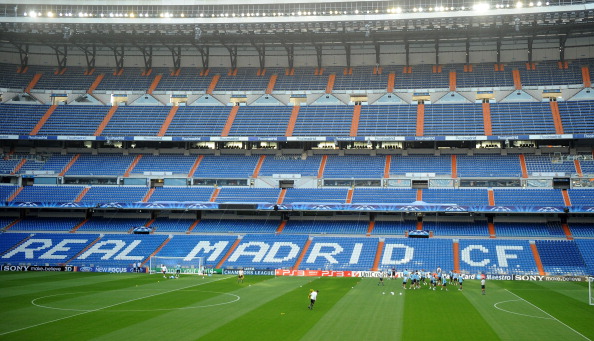By David Gold
September 21 – Real Madrid has set a new world record after generating €480 million (£419 million/$655 million) in turnover for the year ending June 30, 2011, beating the previous figure set by rivals Barcelona earlier this week.
Madrid’s revenue was boosted by a run to the semi-finals of the European Champions League, where they lost to eventual winners and Spanish rivals Barcelona, having failed to progress beyond the second round of the competition in the previous six seasons.
The majority of Real’s income comes from television revenues, stadium receipts and marketing, and comes after Barcelona themselves announced what were, for three days at least, record €473 million (£413 million/$645 million) revenues for last season.
The European and Spanish champions finished the season with a loss of €9.3 million (£8.1 million/$12.7 million) after reducing their net debts.
“We followed an austere line, as we’re committed to growth, and we’ve reduced the debt, but we are still in a delicate situation,” Javier Faus, Barça’s vice-president said on the club’s official website.
“The debt is still too high for us to be able to dictate our future.
“It’s not the debt that we want, and we have to reduce it further to sustainable levels with regard to the cash flow generated by the club.
“We can’t afford to owe so much money to the bank, and we need to generate more income.”
Madrid were able to post a profit of €31.6 million (£27.6 million/$43.1 million), and their financial success owes much to an aggressive marketing strategy in recent years aimed at increasing their income from this area, thus reducing their reliance on other areas, particularly television rights, which are coming under increasing pressure.
Real and Barcelona each take approximately €120 – €150 million (£105 – £131 million/$164 – $205 million) every year from television income, at least double what English Premier League champions Manchester United receive, but their La Liga rivals are pressuring them to accept a collective deal which would reduce their revenues in this area.
Last year a deal was signed which would reduce their overall share of La Liga TV income from 45 per cent to 34 per cent, though a small group of teams led by Sevilla are pursuing a more centralised deal organised by the Spanish league.
The La Liga runners up said of their record revenues in a statement, “it is the largest revenue obtained by any sports institution in the world.”
“This diversification of the recurring income confers stability onto the club, cushioning the impact of possible income oscillations motivated by differences in performance in sports and the evolution of financial activity.”
Contact the writer of this story at zib.l1752124320labto1752124320ofdlr1752124320owedi1752124320sni@d1752124320log.d1752124320ivad1752124320

